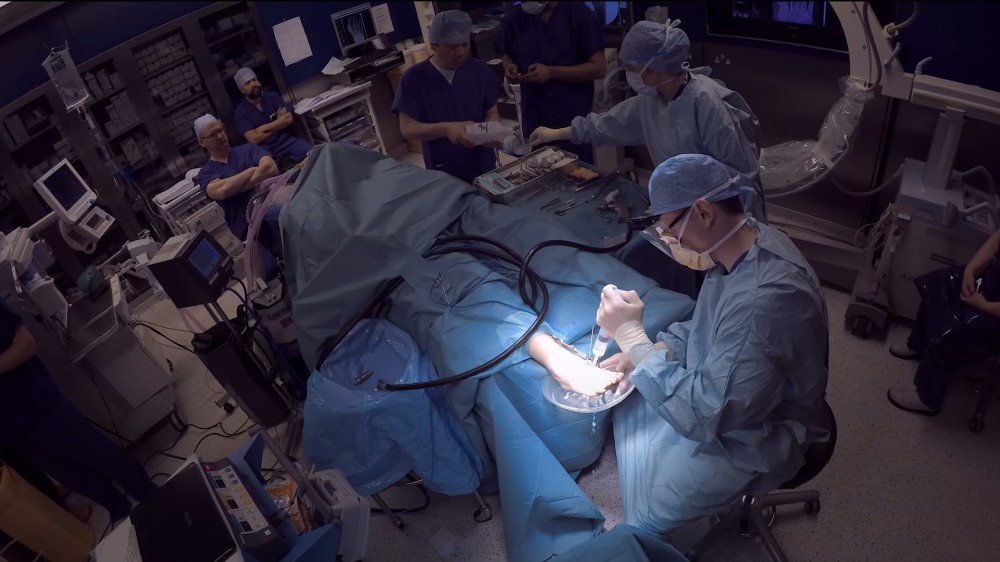
What is Podiatric Surgery?
Podiatric surgery is the surgical management of the bones, joints and soft tissues of the foot and associated structures. A Podiatric Surgeon is a highly skilled clinician who in addition to a first degree in Podiatric Medicine continues to study at Master’s degree level in Podiatric Surgery and will have undertaken rigorous academic and practical study to qualify to perform foot and ankle surgery.
Podiatric surgeons work with vascular consultants, diabetologists, orthopaedic surgeons, interventional radiologists and other members of multidisciplinary teams to ensure each patient receives the highest quality care and the best clinical outcomes.
Podiatric surgeons are not medically qualified and therefore are not registered with the GMC.
Podiatric surgeons are Fellows of the College of Podiatry and are registered with The Health and Care Professions Council (HCPC). The HCPC is an independent, UK-wide regulatory body responsible for setting and maintaining standards of professional training, performance and conduct of healthcare professions.
RegulationAll Podiatric Surgeons are regulated by the Health and Care Professions Council (HCPC), and work to proficiency standards to ensure protection of the public.
Where do Podiatric Surgeons work?Podiatric Surgery is only offered in sites that meet Care Quality Commission (CQC) standards, this may be in an Acute or Community NHS Trust or within a private hospital setting.
Supervision of Trainee Podiatric SurgeonsTraining of a podiatric surgeon takes place within an NHS environment; with rotations through various departments and multidisciplinary teams including Rheumatology, Neurology, pain management, Orthopaedics, Diabetes and Radiology and Vascular departments.
Throughout their training their direct supervisor will be a Consultant Podiatric Surgeon, under rigorous training and education standards set by the regulatory body, and in combination with the university.
A trainee podiatric surgeon will work under clinical supervision until they have achieved the certificate of completion of podiatric surgery training.
Commissioning of Podiatric SurgeryThe 2017 NICE accredited commissioning guidance for ‘bunion’ surgery states that surgery ‘should be undertaken by orthopaedic surgeons trained in foot and ankle surgery or HCPC registered podiatric surgeons, integrated into a multi-disciplinary network.’
Some podiatric surgery departments are integrated services within larger surgical directorates working alongside orthopaedic surgeons. For many Trusts this is seen as an effective use of resources as it offers patients choice; which should include non-surgical treatment options for foot complications. Some areas of the UK do not have a podiatric surgery department; in which case patients would be referred to their local acute orthopaedic department.
Rates of complicationsComplications are linked to the complex nature of foot surgery. Commissioning guidance states that surgery should only offered after conservative non-surgical options have been exhausted, such as orthoses, injection therapy, footwear advice and MSK treatments.
Everything is done to mitigate against complications that may occur with any surgical procedure, as well as specific procedure and patient complications, these may be linked to the patients’ medical health or compliance with the post-operative care regime. The "2017 Commissioning Guide: Painful Deformed Great Toe in Adults", lays out the threshold that must be reached prior to surgery being offered as an option.
Quality AssurancePodiatric Surgery is a proven and effective part of foot health care, with thousands of foot operations undertaken in the UK by Podiatric Surgeons every year.
Information is collected for audit purposes in order to review performance, show evidence of practice and assess patient outcomes and experiences. Ask your consultant about the national audit database PASCOM-10.
This information relates to Podiatric Surgery carried out within the UK and Podiatric Surgeons who work within the UK. Different regulation and standards of training and practise will apply outside the UK.
